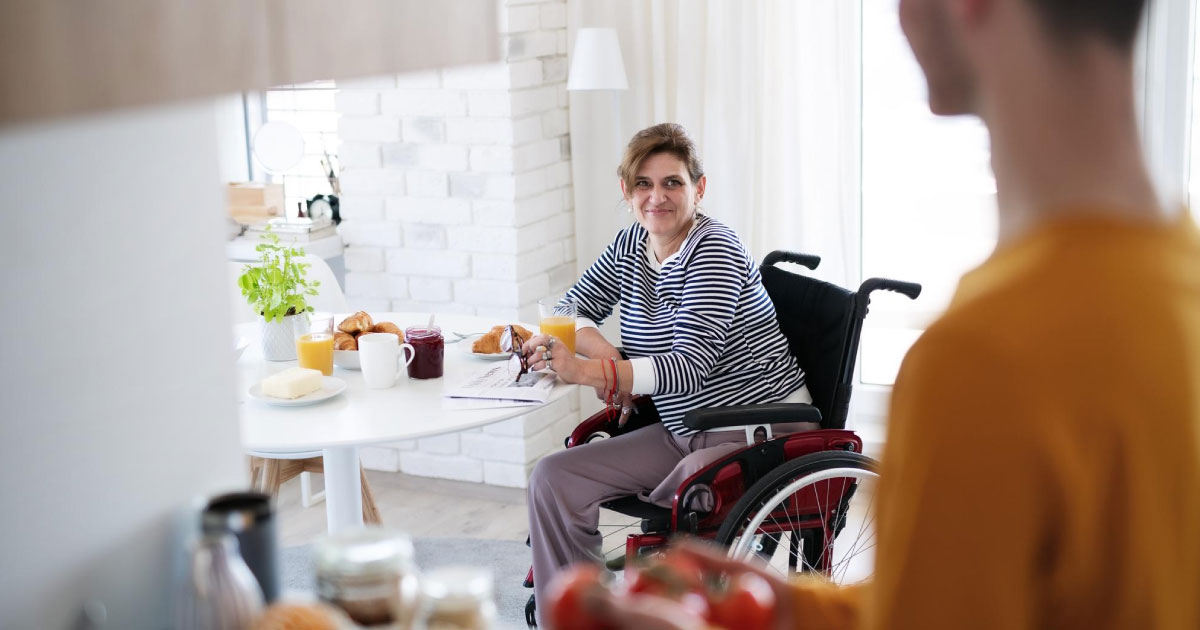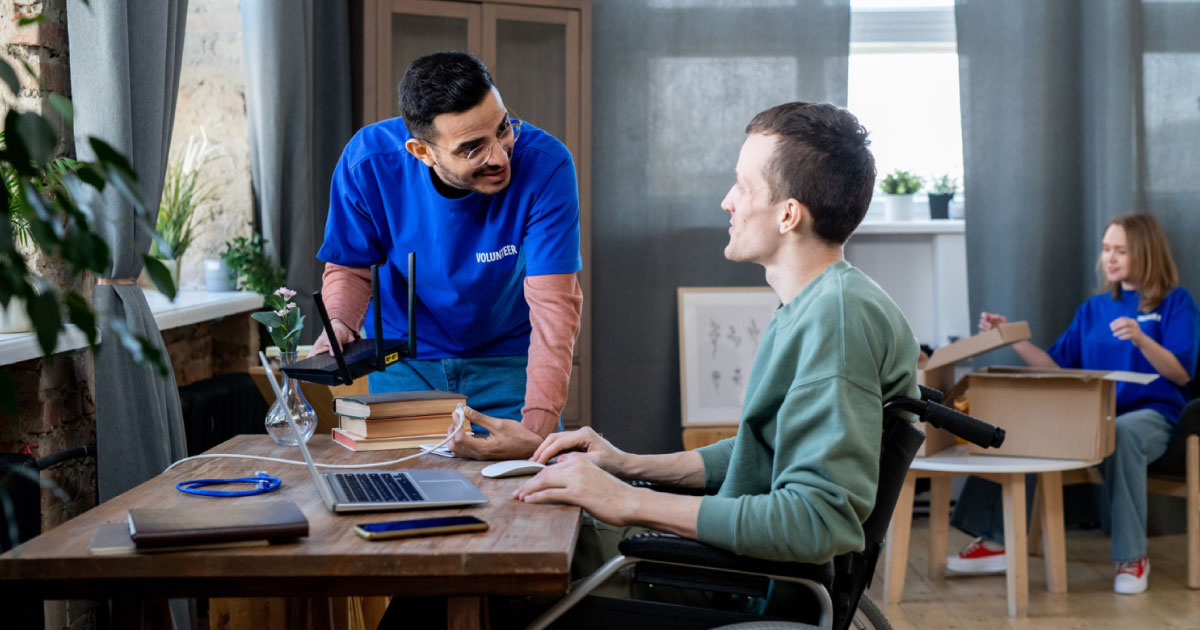Living with a disability can make daily tasks harder. But the National Disability Insurance Scheme (NDIS) is here to help. The NDIS gives money and support to people with disabilities. This helps them live on their own and reach their goals. One big part of the NDIS is Assistance with Daily Life. This support helps people with personal tasks, like getting dressed or eating. It also helps with household jobs, like cooking or cleaning. These are things everyone needs to do every day.
This blog will explain NDIS Assistance with Personal Activities. We will talk about the support you can get, what it covers, and how to use your NDIS funding in the best way.
What is NDIS Assistance with Daily Life?
NDIS Assistance with Daily Life means getting help to handle daily tasks. This help can include taking care of yourself, cleaning the house, or joining activities in your community. NDIS funding is there to make these tasks easier and to help you live on your own as much as you can.
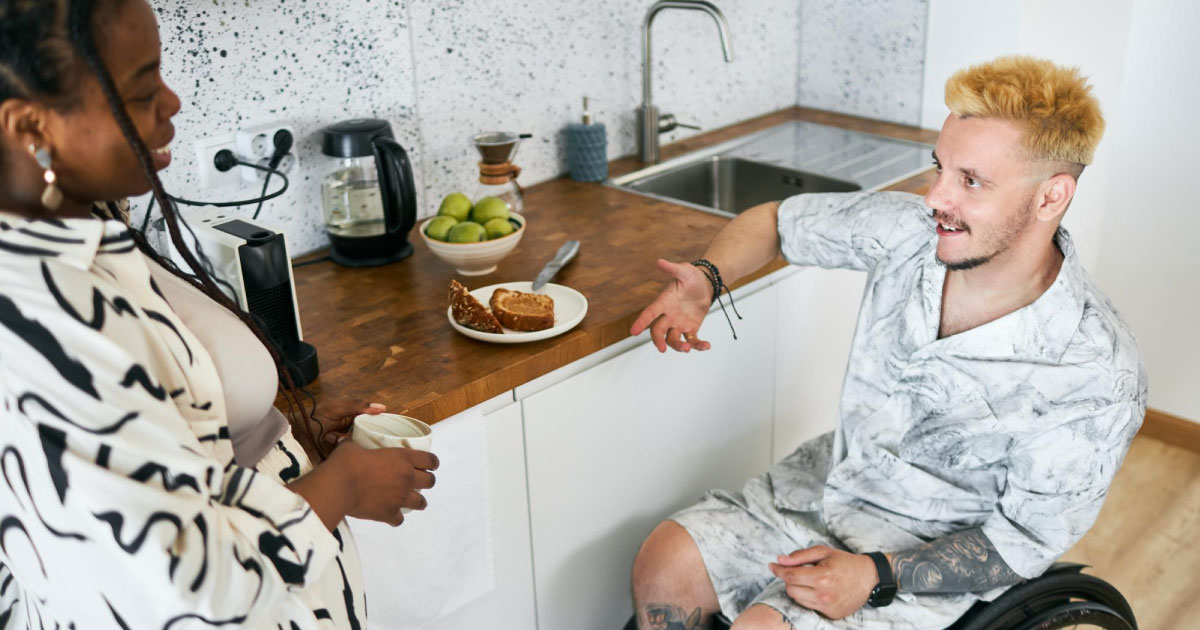
The support can be broken down into four main categories:
- Assistance with Personal Activities: You can get help with things like taking a bath, getting dressed, brushing your hair, and using the toilet.
- Household Tasks: You can get help with cooking, cleaning, and keeping your home tidy.
- Social & Community Participation: You can get support to join social and fun activities.
- Transport: You can get help with going to appointments, work, or local events.
What Kind of support does NDIS assistance with personal activities include?
NDIS Assistance with Daily Personal Activities helps people with disabilities with daily tasks. These are simple
most people do without thinking. The support includes help with tasks like these.
1. Personal Care Support
- Showering and Bathing: Help with getting in and out of the shower. Help with washing and staying clean.
- Dressing and Grooming: Help with picking clothes, getting dressed, brushing hair, shaving, or putting on makeup.
- Toileting: Help with using the toilet, bladder and bowel needs, and menstrual care if needed.
2. Assisting with Mobility and Transfers
- Getting in and out of bed: Help with moving from your bed to a chair, wheelchair, or around the home.
- Moving in and out of the bathroom: Help with sitting down, standing up, or moving between positions.
3. Household Assistance
- Cooking and Meal Preparation: Help with planning what to eat. Support with making and cooking food. Help with grocery shopping if needed.
- Cleaning and Laundry: Help with washing dishes. Support with cleaning clothes, sweeping floors, and keeping the house tidy.
- Gardening: Help with taking care of gardens and outdoor spaces. Support with watering plants, pulling out weeds, and keeping the yard neat and nice.
4. Social and Community Participation
- Social Events and Outings: Help to go to social events, join community groups, or enjoy fun activities. This makes sure people with disabilities can have good social times and not feel lonely.
- Connecting with Others: Helps to make and keep friends. Support to go to clubs, join group activities, or meet friends for coffee.
5. Transport Assistance
- Getting to Appointments or Work: Help with getting to places like doctor’s appointments or work. Support can include help with travel or funding for public transport or private rides.
- Travel Training: Help with learning how to travel alone using public transport. Support to build your confidence and skills for traveling on your own.
What Is Not Covered by NDIS Assistance with Daily Life?
While NDIS assistance covers a lot, there are some things it doesn’t include. It’s essential to know what’s excluded to avoid confusion later on. Here’s a quick list of things that NDIS Assistance with Daily Life does not cover:
- Food and Meals: The NDIS does not pay for the cost of food itself. But they can help with making meals or setting up meal delivery services if needed.
- Household Items: The NDIS does not pay for things that are not related to your disability. This includes cleaning supplies, toiletries, or personal care items like cosmetics.
- Rent, Mortgage, or Housing Costs: The NDIS does not help with paying for rent, home loans (mortgages), or general housing expenses.
- Social and Entertainment Expenses: The NDIS does not pay for fun stuff like movie tickets, event tickets, or shows. They will only pay for these if it is related to your disability and needed to help you join community activities.
How Can You Get NDIS Assistance with Daily Personal Activities?
Getting help from the NDIS for your daily tasks can seem tricky, but don’t worry! Follow these steps, and you’ll be on your way:
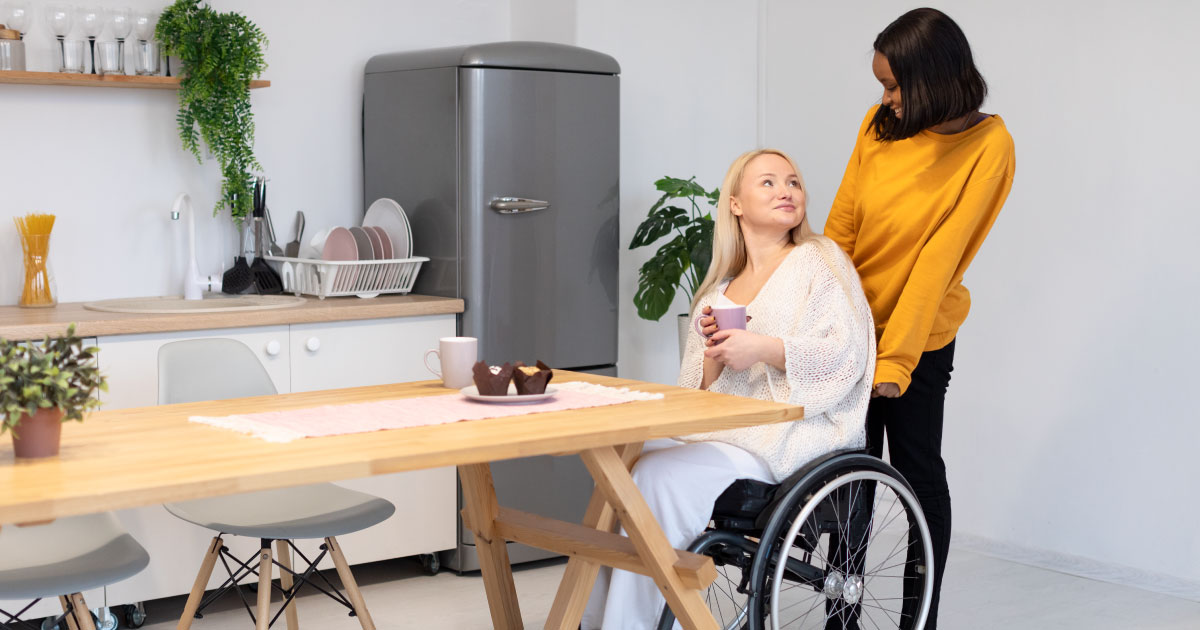
Understand Your Needs
Before your NDIS planning meeting, it’s a good idea to think about the help you need. Take some time to reflect on the daily tasks you find hard. Write down the specific things you need help with. For example, getting dressed, cooking, or cleaning. This list will make it easier to talk about your needs during the meeting. Being prepared will help everyone understand how to support you best!
Prepare for Your NDIS Planning Meeting
Your NDIS planning meeting is the time to talk about your goals and the help you need. Bring important papers with you. These could be medical reports, disability papers, or letters from doctors. These papers should explain why you need help with daily tasks. This will show how the support can help you live more independently and make your life easier.
Speak to Your Local Area Coordinator (LAC)
Your LAC (Local Area Coordinator) is there to help you with the NDIS. They will work with you to figure out what support you need. They will make sure your plan has funding for the help you need with daily tasks. Your LAC is there to guide you and make things easier!
Get Your NDIS Plan Approved
After your planning meeting, the NDIS will look at your needs and make a plan for you. If your plan includes help with daily tasks, you will get a budget for this. The budget will pay for things like personal care, chores, and joining community activities. This support is there to make your life easier!
Practical Tips for Getting the Most Out of Your NDIS Assistance with Personal Activities
The NDIS gives great help to people with disabilities. It helps them live more independently and be part of the community. One way the NDIS helps is with personal activities. This can include daily tasks, personal care, and household chores. To get the best out of your NDIS plan, here are some useful tips:
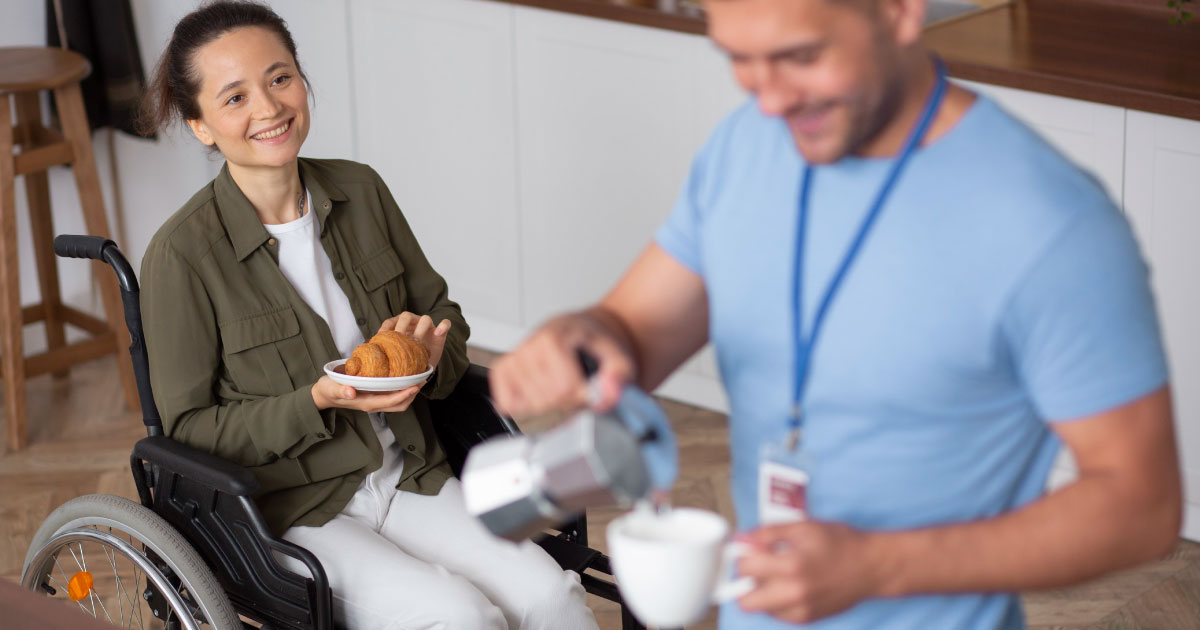
Be Specific About Your Needs
When you talk to your NDIS planner, be clear about the help you need. If you need support with certain things in the morning, like getting dressed or making breakfast, say that in your plan. The more details you give, the easier it will be to get the right support for you!
Incorporate Short-Term and Long-Term Goals
Think about your personal goals and how NDIS support can help you reach them. Whether it’s becoming more independent at home, improving your social life, or learning new skills, include these goals in your plan. This ensures the support you receive is tailored to your aspirations.
Consider Different Service Providers
Not all service providers are the same. Research different NDIS providers in your area to find one that offers the right level of support for your needs. Look for providers that are flexible and offer the services that align with your goals.
Review Your Plan Regularly
Your needs may change over time. Regularly review your NDIS plan with your LAC or planner to ensure it continues to meet your needs. If your circumstances change or you need additional support, don’t hesitate to request adjustments to your plan.
Engage with Your Support Workers
Having a good relationship with your support workers can really help in your daily life. Talk openly about what you like, what you need, and any problems you might have. Working well with your support team can help you feel more independent and confident. A strong team makes a big difference!
How Can A Disability Healthcare Help?
A disability healthcare provider gives lots of support through NDIS, including help with daily life. Our goal is to help people with disabilities live on their own and feel confident in their homes. Here’s what we provide:
- Personal Care: We can help you with things like showering, getting dressed, grooming, and keeping clean. Our goal is to make sure you feel comfortable and well cared for every day.
- Household Assistance: We can help with cooking meals, cleaning, gardening, and keeping your home comfy and tidy. Our support makes it easier for you to enjoy your home every day.
- Community Support: We can help you join social activities, make friends, and connect with people in your area. Our goal is to help you feel included and have fun in your community.
- Transport Assistance: We can help you with getting to your appointments or learning how to use buses and trains on your own. Our goal is to make traveling easier and help you gain confidence to go where you need to.
If you need help with daily living activities, our dedicated team is here to provide support tailored to your individual needs.
Final Thoughts
The NDIS helps people with disabilities do everyday tasks. This includes things like getting out of bed, making food, or joining fun activities. The goal is to give you the support you need to feel more independent and enjoy your day-to-day life.
By learning about the support you can get and getting ready for your NDIS planning meeting, you can make sure your plan fits your needs. The right support can help you reach your goals and live a happier, more independent life. For friendly help and advice, contact Clear Way Support. They can guide you and help you make the most of your NDIS journey.




